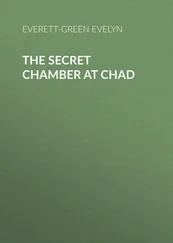Evelyn Everett-Green - The Sign of the Red Cross - A Tale of Old London
Здесь есть возможность читать онлайн «Evelyn Everett-Green - The Sign of the Red Cross - A Tale of Old London» — ознакомительный отрывок электронной книги совершенно бесплатно, а после прочтения отрывка купить полную версию. В некоторых случаях можно слушать аудио, скачать через торрент в формате fb2 и присутствует краткое содержание. Жанр: foreign_antique, foreign_prose, на английском языке. Описание произведения, (предисловие) а так же отзывы посетителей доступны на портале библиотеки ЛибКат.
- Название:The Sign of the Red Cross: A Tale of Old London
- Автор:
- Жанр:
- Год:неизвестен
- ISBN:нет данных
- Рейтинг книги:3 / 5. Голосов: 1
-
Избранное:Добавить в избранное
- Отзывы:
-
Ваша оценка:
- 60
- 1
- 2
- 3
- 4
- 5
The Sign of the Red Cross: A Tale of Old London: краткое содержание, описание и аннотация
Предлагаем к чтению аннотацию, описание, краткое содержание или предисловие (зависит от того, что написал сам автор книги «The Sign of the Red Cross: A Tale of Old London»). Если вы не нашли необходимую информацию о книге — напишите в комментариях, мы постараемся отыскать её.
The Sign of the Red Cross: A Tale of Old London — читать онлайн ознакомительный отрывок
Ниже представлен текст книги, разбитый по страницам. Система сохранения места последней прочитанной страницы, позволяет с удобством читать онлайн бесплатно книгу «The Sign of the Red Cross: A Tale of Old London», без необходимости каждый раз заново искать на чём Вы остановились. Поставьте закладку, и сможете в любой момент перейти на страницу, на которой закончили чтение.
Интервал:
Закладка:
Being thus busy at home, he went less than was his wont abroad, and heard but little either of the sullen comet which hung night after night in the sky, or of the whispers sometimes circulating in the city of fresh cases of the distemper.
These last, however, were growing fewer. The scare of a few weeks back seemed to be dying down. People said the pest had been stamped out, and the brighter, hotter weather cheered the hearts of men, albeit in case of sickness it might be their worst enemy, as some amongst them well knew.
"I never believed a word of it!" said the wife of the Master Builder, as she sat in her fine drawing room and fanned herself with a great fan made of peacock's feathers. She was very handsomely dressed, far muore like a fine Court dame than the wife of a simple citizen. Her comnpanion was a very pretty girl of about nineteen, whose abundant chestnut hair was dressed after a fashionable mode, although she refused to have it frizzed over her head as her mother's was, and would have preferred to dress it quite simply. She wished she might have plain clothes suitable to her station, instead of being tricked out as though she were a fine lady. But her mother ruled her with a rod of iron, and girls in those days had not thought of rising in rebellion.
The Master Builder's wife considered that she had gentle blood in her veins, as her grandfather had been a country squire who was ruined in the civil war, so that his family sank into poverty. Of late she had done all in her power to get her neighbours to accord her the title of Madam Mason, which she extorted from her servants, and which was given to her pretty generally now, although as much in mockery, it must be confessed, as in respect of her finery. She did not look a very happy woman, in spite of all the grandeur about her. She had frightened away her simpler neighbours by her airs of condescension and by the splendour of her house, and yet she could not yet see any way of inducing other and finer folks to come and see her. Sometimes her husband brought in a rich patron and his wife to look at the fine room, and examnine the furniture in it, and these persons would generally be mighty civil to her whilst they stayed; but then they did not come to see her, but only in the way of business. It was agreeable to be able to repeat what my lord this or my lady that said about the cabinets and chairs; but after all she was half afraid that her boasting deceived nobody, and Gertrude would never come to her aid with any little innocent fibs about their grand visitors.
"I never did believe a word of it," repeated Madam, after a pause. "Gertrude, why do you not answer when I speak to you? You are as dull as a Dutch doll, sitting there and saying nothing. I would that Frederick were at home! He can speak when he is spoken to; but you are like a deaf mute!"
"I beg your pardon, ma'am. I was reading-I did not hear."
"That is always the way-reading, reading, reading! Why, what good do you think reading will do you? Why don't you get your silk embroidery or practise upon the spinnet? Such advantages as you have! And all thrown away on a girl who does not know when she is well off. I have no manner of patience with you, Gertrude. If I had had such opportunities in my girlhood, I should never have been a mere citizen's wife now."
A slightly mutinous look passed across Gertrude's face. Submissive in word and manner, as was the rule of the day, she was by no means submissive in mind, and had her mother's ears been sharper she might have detected the undertone of irony in the reply she received.
"I think nobody would take you for a citizen's wife, ma'am. As for me, I am not made to shine in a higher sphere than mine own. I have not even the patience to learn the spinnet. I would sooner be baking pies with Rebecca next door, as we used to do when we were children, before father grew so rich."
Madam's face clouded ominously. She heartily wished she had never admitted her children to intimacy with the Harmers next door. It had done no harm in the case of Frederick. He was his mother's son, every inch of him, and was as ready to turn up a supercilious nose at his old comrades as ever Madam could wish.
But Gertrude was different-she was excessively provoking at times. She did not seem able to understand that if one intended to rise in the world, one must cut through a number of old ties, and start upon a fresh track. It was not easy in those times to rise; but still the wealthier citizens did occasionally make a position for themselves, and get amongst the hangers-on of the Court party, especially if they were open handed with their money.
Madam often declared that if they only moved into another part of the town, everything she wanted could be attained; but on that point her husband was inexorable. He loved the old bridge house. There he had been born, and there he meant to die, and he had not the smnallest intention of removing elsewhere to please even the wife to whom he granted so many indulgences.
"You are a fool!" cried Madam, angrily; "you say those things only to provoke me. I wish you had some right feeling and some conversation. You are as dull as ditch water. You care for nothing. I don't believe it would rouse you to hear that the plague was in the next street!"
"Well, we shall see," answered Gertrude, with a calmness that was at least a little provoking, "for people say it is spreading very fast, and may soon be here."
"What!" cried Madam, in a sudden panic; "who says that? What do you mean, girl?"
"It was Reuben who told me," answered Gertrude, with a little blush which she tried to conceal by turning her face towards the window.
But her ruse was in vain. Madam's hawk eye had caught the rising colour, and her brow contracted sharply.
"Reuben! what Reuben? Have I not told you a hundred times that I would have none of that sort of talk any more? Reuben, indeed! as though you were boy and girl together! Pray tell me this, you forward minx, does he dare to address you as Gertrude when he has the insolence to speak to you in the streets, where alone I presume he can do so?"
Gertrude's face was burning with indignation. She had to clasp her hands tightly together to restrain the hot words which rose to her lips.
"We have been children together-and friends," she said, "the Harmers and I. How should we forget that so quickly-even though you have forgotten! My father does not mind."
Madam's face was as red as her daughter's. She was about to make some violent retort, when the sound of a footstep on the stairs checked the words upon her lips.
"There is Frederick!" she said.
CHAPTER II. LONDON'S YOUNG CITIZENS
The door of the room where mother and daughter sat was flung wide open with scant ceremony, and to the accompaniment of a boisterous laugh. Into the room swaggered a tall, fine-looking young man of some three-and-twenty summers, dressed in all the extravagance of a lavish and extravagant age. Upon his head he wore an immense peruke of ringlets, such as had been introduced at Court the previous year, and which was almost universal now with the nobles and gentry, but by no means so amongst the citizens. The periwig was surmounted by a high-crowned hat adorned with feathers and ribbons, and ribbons floated from his person in such abundance that to unaccustomed eyes the effect was little short of grotesque. Even the absurd high-heeled shoes were tied with immense bows of ribbon, whilst knees, wrists, throat, and even elbows displayed their bows and streamers. The young dandy wore the full "petticoat breeches" of the period, with a short doublet, a jaunty cloak hung from the shoulders, and an abundance of costly lace ruffles adorned the neck and wrists of the doublet, he wore at his side a short rapier, and had a trick of laying his hand upon the hilt, as though it would take very little provocation to make him draw it forth upon an adversary.
Читать дальшеИнтервал:
Закладка:
Похожие книги на «The Sign of the Red Cross: A Tale of Old London»
Представляем Вашему вниманию похожие книги на «The Sign of the Red Cross: A Tale of Old London» списком для выбора. Мы отобрали схожую по названию и смыслу литературу в надежде предоставить читателям больше вариантов отыскать новые, интересные, ещё непрочитанные произведения.
Обсуждение, отзывы о книге «The Sign of the Red Cross: A Tale of Old London» и просто собственные мнения читателей. Оставьте ваши комментарии, напишите, что Вы думаете о произведении, его смысле или главных героях. Укажите что конкретно понравилось, а что нет, и почему Вы так считаете.












